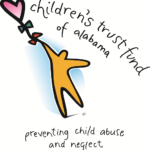In my last blog post, I introduced a common issue in relationship dynamics and particularly in addiction experiences: codependency. In this post, I’ll discuss what keeps cycles of codependency running. If you have loved ones struggling with addiction problems, it may be useful to identify parallels in the experiences of addicts and codependents.
In addiction, the disease progresses when addictive behaviors are unchallenged and persistent. Codependency operates the same way. Before we engage in any behavior, we usually feel something—think of this as an urge or craving—that prompts us to act. Using substances is preceded by urges to use/drink, just as codependent behaviors are preceded by certain urges. Those urges are sometimes deceitful because while codependency is generally unhealthy, it can sometimes mask itself in caregiving.
 Consider this example: if you feel there’s an issue between yourself and a loved one, but you find yourself avoiding broaching this subject with them, pay attention to that hesitation. What fears do you have for avoiding having a conversation with them about the issue? Are you worried their feelings will be hurt? Are you questioning yourself and why you even have a problem in the first place? Are you simply reluctant to speak up about it because it feels awkward? Once you have your answer, go back to the original issue with your loved one. Does it bother you? Have others told you you’re justified in feeling bothered by it? Would your relationship likely improve if this issue was resolved? If you answer yes to any of those last questions, you’ve come to a point where a decision is needed: do I set a boundary to address the issue, or do I continue avoiding it to spare the person’s feelings?
Consider this example: if you feel there’s an issue between yourself and a loved one, but you find yourself avoiding broaching this subject with them, pay attention to that hesitation. What fears do you have for avoiding having a conversation with them about the issue? Are you worried their feelings will be hurt? Are you questioning yourself and why you even have a problem in the first place? Are you simply reluctant to speak up about it because it feels awkward? Once you have your answer, go back to the original issue with your loved one. Does it bother you? Have others told you you’re justified in feeling bothered by it? Would your relationship likely improve if this issue was resolved? If you answer yes to any of those last questions, you’ve come to a point where a decision is needed: do I set a boundary to address the issue, or do I continue avoiding it to spare the person’s feelings?
Too often, most of us make our decisions based on how others will respond. Part of that stems from insecurities and fears we hold that never even come to fruition. But I believe another reason lies in negative experiences we’ve had with others that we probably would rather forget if we had the choice. It is true that some boundaries, even the healthiest ones, will be met with poor responses by the people you’re establishing the boundaries with in relationships. Does this presence of a poor response negate the importance of the boundary itself? Absolutely not. It certainly makes it more challenging for us to establish the boundary in the first place, though. Of course we don’t want our loved ones to feel hurt in any way, but if we avoid establishing the boundaries that need to be present in our relationships, we are actively deciding to sacrifice our own wants and needs. This hurts us in the long run.
A person with an addiction problem faces similar dilemmas internally. Do you set a boundary with yourself and go to a 12 Step meeting and decide to try to stay sober today? Or do you avoid the boundary and keep using because feeling something you’re trying to suppress seems too overwhelming today? The healthy decision—setting the boundary—will cause unpleasant feelings to arise. But no one can argue against the positive, longer-term outcomes of setting and maintaining boundaries like that when trying to address addiction problems.
 Codependency can be explained as an “addiction” of sorts. This is especially true for many of the clients I work with who identify their codependent tendencies as compulsive, overpowering, and daunting. If you spend years sacrificing your needs for the sake of caregiving, you’ll notice that some pleasant feelings do exist within the context of codependency. After all, we want our loved ones to feel happy and fulfilled and for some of us, this extends to strangers as well. Caregivers enjoy other people’s joy, especially if that joy is a result of something we’ve done in the name of nurturing.
Codependency can be explained as an “addiction” of sorts. This is especially true for many of the clients I work with who identify their codependent tendencies as compulsive, overpowering, and daunting. If you spend years sacrificing your needs for the sake of caregiving, you’ll notice that some pleasant feelings do exist within the context of codependency. After all, we want our loved ones to feel happy and fulfilled and for some of us, this extends to strangers as well. Caregivers enjoy other people’s joy, especially if that joy is a result of something we’ve done in the name of nurturing.
Go back to the example I gave earlier. You have a bone to pick with a friend. If you bring it up, will that person feel joyful? Chances are slim. Will they feel hurt or maybe even angry? Possibly. But these worries are not reasons for avoiding boundaries. They shouldn’t be the measurements we use in decision-making—or at least, these worries shouldn’t be left untouched at the top of our priority list.
Check back for the next post on how to manage difficult emotions associated with setting healthy boundaries so those feelings no longer act as barriers to us engaging in fulfilling relationships. In the meantime, turn your attention towards areas of your life where boundaries would serve you well. If your life has been touched by addiction in any way, remember that the road of addiction is wrought with opportunities where boundaries are often overstepped, misplaced, and ignored. The short-term cost of boundary setting is painful, but the long-term benefits of boundary maintenance are undeniable.
Written by: Melanie Childers
Melanie is a Licensed Professional Counselor who received her Master’s degree in Clinical Mental Health Counseling from The University of Alabama in 2015 with an emphasis in Marriage and Family Therapy. She has over 5 years of experience working with those who struggle with addiction and with couples and families. She is trained in EMDR therapy and has experience in working with people in the LGBTQ+ community. Melanie works under Lifeline Solutions, LLC, which has two locations serving communities in Birmingham and Tuscaloosa. For more information about psychotherapy services, contact Melanie at 205-614-2604or mchilders@lifelinesolutionsllc.com and visit www.lifelinesolutionsllc.com.








